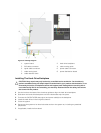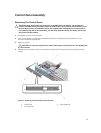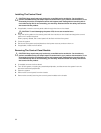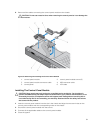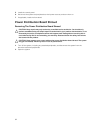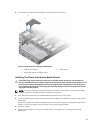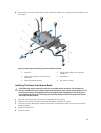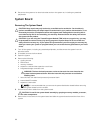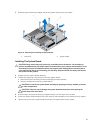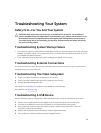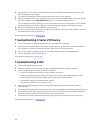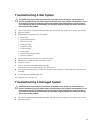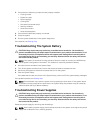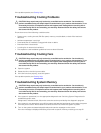
6. Reconnect the system to its electrical outlet and turn the system on, including any attached
peripherals.
System Board
Removing The System Board
CAUTION: Many repairs may only be done by a certified service technician. You should only
perform troubleshooting and simple repairs as authorized in your product documentation, or as
directed by the online or telephone service and support team. Damage due to servicing that is
not authorized by Dell is not covered by your warranty. Read and follow the safety instructions
that came with the product.
CAUTION: If you are using the Trusted Program Module (TPM) with an encryption key, you may
be prompted to create a recovery key during program or System Setup. Be sure to create and
safely store this recovery key. If you replace this system board, you must supply the recovery key
when you restart your system or program before you can access the encrypted data on your hard
drives.
1. Turn off the system, including any attached peripherals, and disconnect the system from the
electrical outlet.
2. If installed, remove the front bezel.
3. Open the system.
4. Remove the following:
a. cooling shroud
b. PDB shroud
c. memory modules
d. expansion cards and the expansion-card risers
e. integrated storage controller card
WARNING: The heat sink and processor are hot to the touch for some time after the
system has been powered down. Allow the heat sink and processor to cool before
handling them.
f. heat sink/heat-sink blank and processor/processor blank
g. internal dual SD module
h. expansion card holder
NOTE: It is recommended that you remove the power distribution board before removing
the system board from the chassis.
5. Disconnect all other cables from the system board.
CAUTION: Do not lift the system board assembly by grasping a memory module, processor,
or other components.
6. Remove the nine screws on the system board and slide the system board toward the front of the
system.
86



